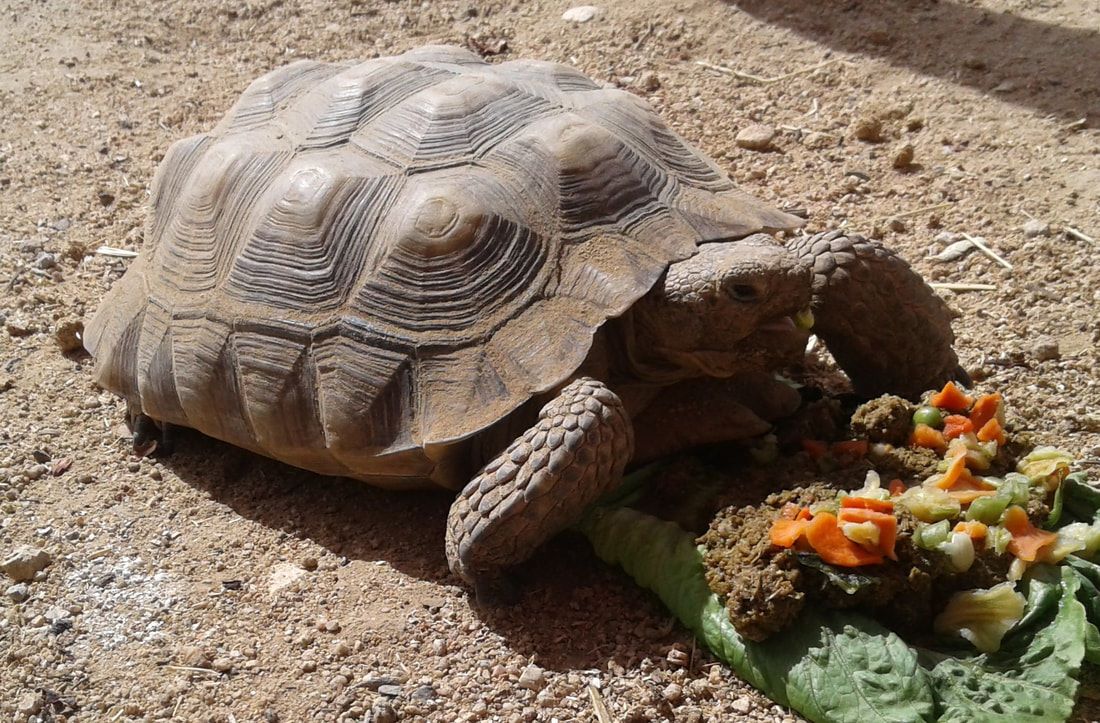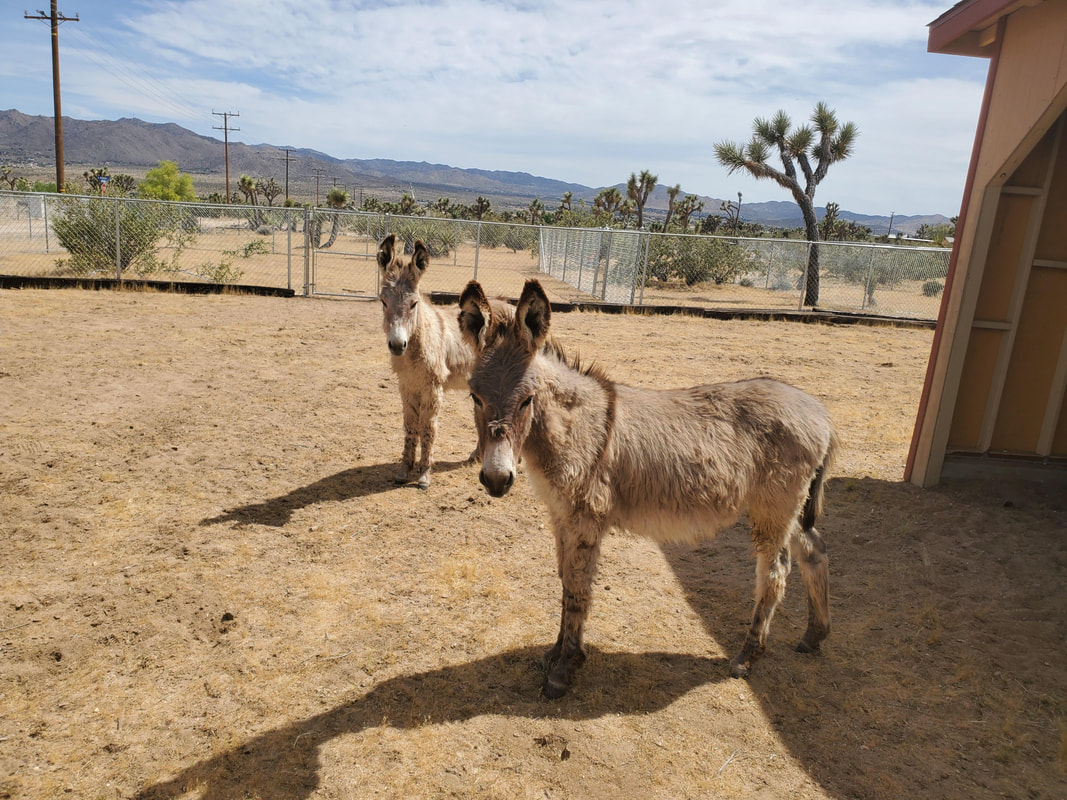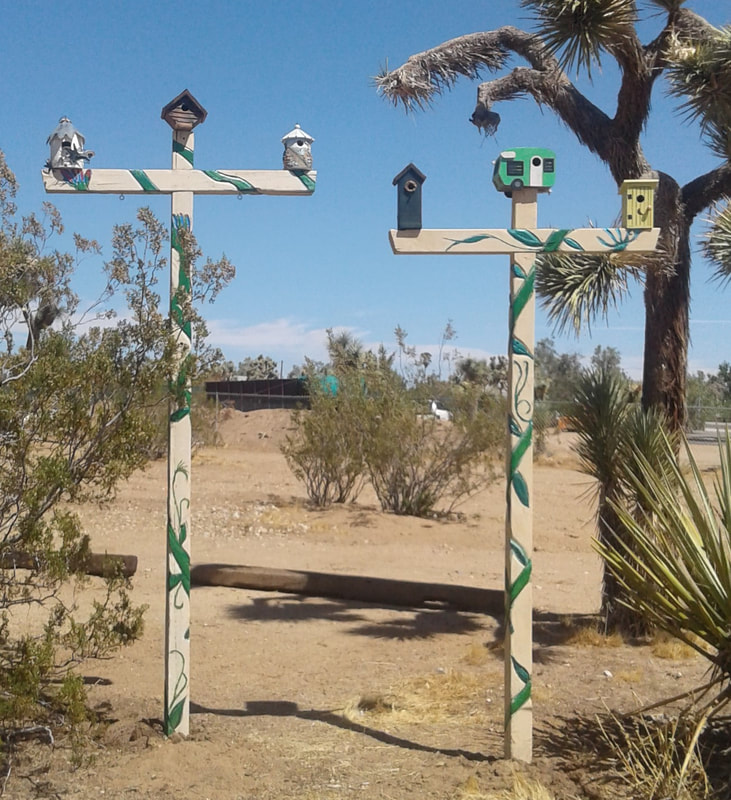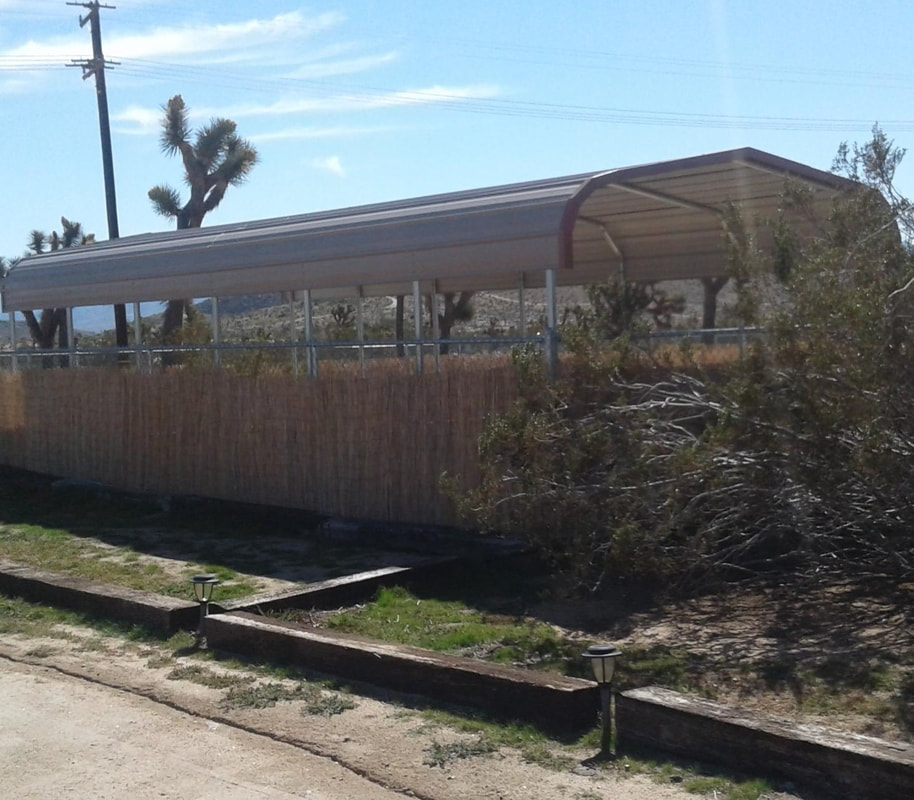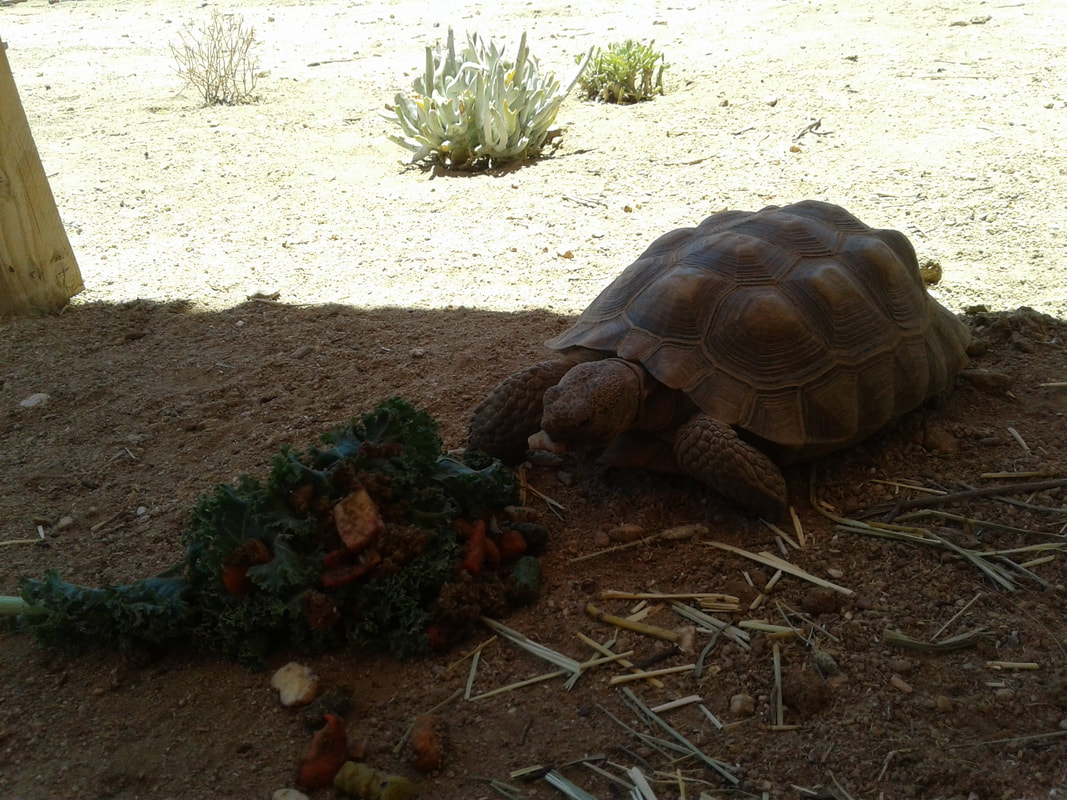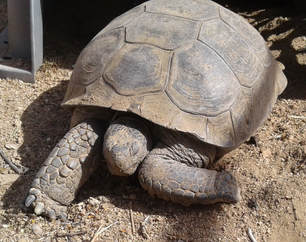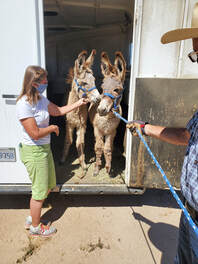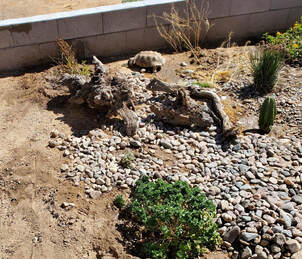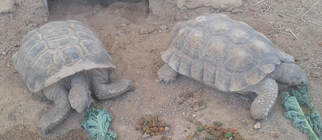Memories on the Mesa
Memories on the Mesa is a non-profit sanctuary - our mission is to provide a safe home for sick and rescued desert animals.
|
Created as a 501(c)3 non-profit in 2017, Memories on the Mesa is dedicated to bringing sick, neglected desert animals back to health. Each animal has an automatic home here - where they can safely roam within large enclosures closely resembling their natural desert habitat.
With help from grants, fundraisers, and private donations, the following has (as of June 6, 2020) been accomplished: The desert tortoise area has been completed and tortoises are currently living there, surrounded by desert plants, rocks, wood, sun and shade areas, soaking ponds, food and water areas, and their sleeping habitats (burrows). The burro area (consisting of a three-sided cover with an additional attached, open cover in a large fenced enclosure) has been completed. There is also a second fenced-in area attached to the main burro enclosure, giving the burros additional space to roam. A section of land has been cordoned off using railroad tiles and natural vegetation, where food, water containers, and small homes (on the ground and on wooden poles) provide safety for quails, doves, wren, robins, butterflies, hummingbirds, and other desert birds to live and thrive. Tortoises: Did you know that desert tortoises spend most of their lives in underground burrows, hibernating from November - February, and can live to be 80 - and even older than 100? And their lineage can be traced back to the time of the dinosaurs! They are currently considered a threatened species, mostly due to habitat destruction and disease. Happily, we have begun caring for several of these unique and special desert animals. |
Tortoises (cont.): Working closely with an experienced veterinarian, we are caring for and treating tortoises brought to us with serious infections. Most are infected with upper respiratory disease and/or pneumonia. We also treat the stress and dehydration that usually accompanies these medical conditions.
Part of our daily routine in caring for our tortoises includes 10 minute lukewarm baths, nose and mouth cleansings, eye and nose drops, oral liquid medication, and in severe cases, injections. When necessary, we even use baby nebulizers on our tortoises to help them breath. We also provide personalized diets (hay and pellets, home-grown vegetables and fruits, as well as vitamin supplements), which insures that each and every tortoise has the best chance possible to survive. In some cases, hand feeding several times a day has been necessary. If a tortoise is too weak, we will puree food and give it to them in small liquid doses until they are strong enough to eat on their own. It may take many months and several visits to the veterinarian before a tortoise's condition improves. Unfortunately, they will always carry the virus in their system, and so cannot be 'put back' with other tortoises or released into the wild. Burros: We are so happy to announce the arrival of Miles and Stanley! Both are young - born in November 2019. Miles fell down a ravine when he was just a few days old and was rescued by a fireman named Miles. Stanley and his mother were shot - they survived, but mom was unable to nurse her baby. Miles and Stanley were bottle fed from a very young age. They are gentle and sweet - used to human contact - love to be petted, hugged, and brushed. An absolutely beautiful addition to our growing family. We are a small but dedicated organization - determined to save one animal at a time. |

